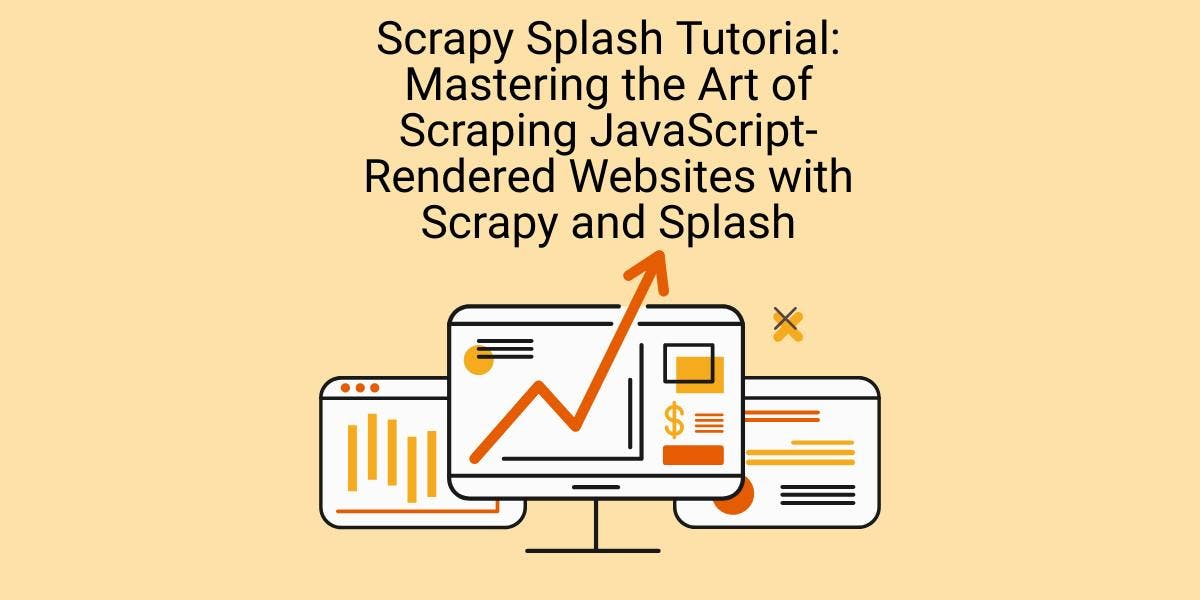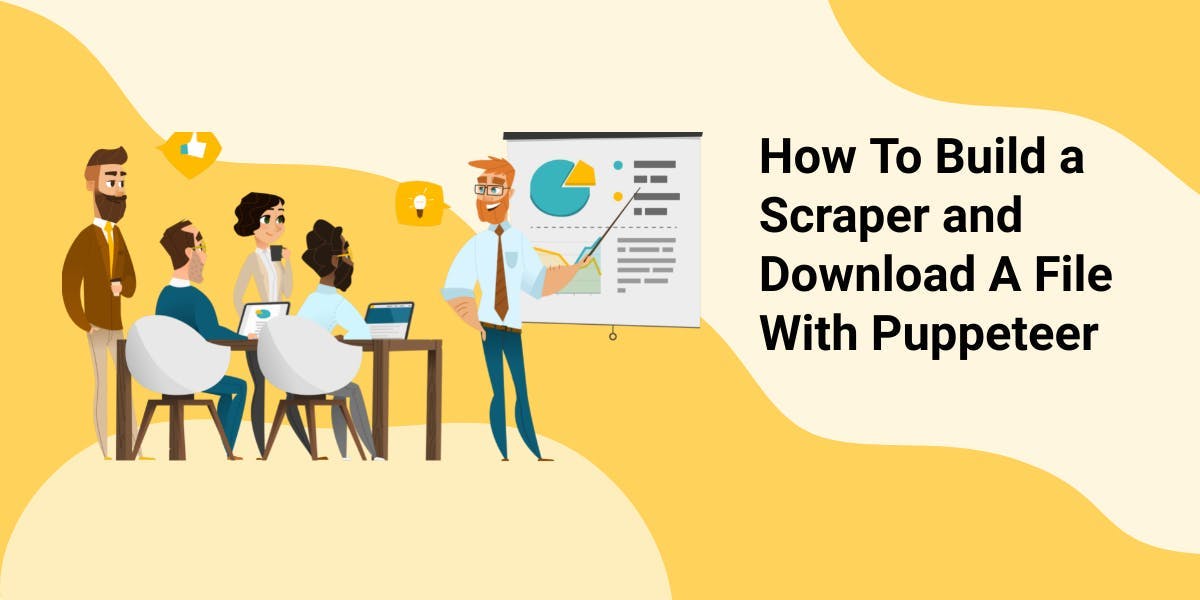Why You Should Stop Manual Scraping and Use a Scraping API
Anda Miuțescu on May 05 2021
We surround ourselves daily with different types of information from websites on the Internet. All this information means valuable data.
Data is an asset used by businesses, developers, freelancers, marketers to run their business or start essential projects in which data analysis and interpretation are crucial. In most cases, this leads to better strategic decisions, developing or improving (new) products, or simply helping the market continue its natural cycle of development and growth.
But how can you get all this data in a simple, fast, and efficient way?
One example would be web scraping, an automatic process of collecting structured web data run by bots. The science behind web scraping is about extracting HTML code and, with it, most of the stored data in a database from any public website.
Web scraping can be done with the help of multiple tools, APIs, and frameworks available on the market. However, the focus of this article is on APIs. Therefore, in the following, you will discover the advantages of choosing an API even when it comes to web scraping to obtain all the necessary data for your projects or your business.
What is an API vs. a web scraping API
There are many definitions or explanations of what an API is, and these would be some of the most on-point and simple descriptions of it.
An Application Programming Interface (API) is a contract established between two software products to exchange data under some common-agreed terms. (WebScrapingAPI)
An API, or Application Programming Interface, is nothing more than an entry point to a system or application for other systems or applications, a set of definitions that software programs can use. (Fuga Cloud)
An API allows communication between 2 applications. An application “A” (at the user’s side) sends a query to the application “B” (the web platform), and then “B” returns a response with the information or the result of the action requested in the query from “A”. (Metosim)

Whichever definition you prefer, one thing is clear: an API offers access to a vast amount of functionalities, which developers can then easily use in their application.
An API is one of the most common tools for harvesting data regarding web scraping. In this case, it acts as a solution to many challenges web scraping enthusiasts encounter while scraping the web, like Javascript rendering, IP blocking, or anti-bots mechanisms.
Let’s take an example to understand better what a web scraping API is and how its features make it possible to extract data at any code lover’s fingertips.
As its name suggests, WebScrapingAPI is, yeah, you’re right, an API that makes web scraping a faster and easier process to obtain web data. It acts the same way as a simple API would do. It connects the data extraction software built by the service provider with whatever you need.
You basically make your requests to the used API, establishing which URL you will target, which proxies you will use and what data you want to extract. The API will return its response in the form of a JSON formatted file.
As mentioned above, some challenges can arise while scraping the online environment. Most of them have the same purpose: to block your activity so that you stop scraping website pages.
Luckily, WebScrapingAPI can take care of the problems so you can enjoy the results. Let’s give you some examples for a complete overview.
- Dynamic Websites: Usage of a headless browser to render Javascript and access all the page’s data.
- IP blocks: Usage of rotating proxies. With each request, the API uses a different IP from its pool of 100+ million datacenter, mobile, and residential proxies across hundreds of ISPs and regions.
- CHAPTCHAs: automatically proxies rotation, wait time randomization, user-agent, browser, and device details to circumvent captchas entirely.
- Fingerprinting: Constant change of your perceived details — so websites see the different requests you send as coming from various visitors. Users can set their custom headers to get customized results, while the anti-fingerprinting functions are automatic.
Now that we have accumulated a consistent background of information and strengthened our foundations about what an API is (even when it comes to web scraping) let’s move on to the most exciting part. What are the advantages of using an API, even if it comes to web scraping?
General advantages of using an API

Easy Integration: APIs make it easier to embed content from any website or program. These ensure that content is delivered more fluidly and that the customer interface is more integrated.
Customization: APIs allow any customer or business to personalize the content and services they use the most.
Automatic process: APIs allow machines to handle work rather than humans. Agencies will upgrade workflows using APIs to make them faster and more efficient.
Usage and application: The distribution of resources and information is more versatile since APIs will control app components.
Multipurpose: An API can be used to create an abstraction layer that can be used to deliver information and resources to new users and can be modified to create specific user interfaces.
Performance: When an API is accessed, the content produced can be automatically released and made accessible through all platforms. It allows being easier displayed and shared.
Advantages of using an API for web scraping

Easy Integration: The simplicity with which a web scraping API can be implemented into a developer’s application is one of its most enticing characteristics. Just a set of credentials and a clear understanding of the API documentation are needed.
Customization: After you’ve fulfilled the first request, you can concentrate entirely on the pieces that concern you, which takes us to another great advantage of web scraping APIs: customization. From API calls and geotargeting to dedicated accounts and custom scrapers, a web scraping API allows you to personalize it and use its features to their full potential to reach all your scraping goals.
Built-in Scraping Solutions: The most significant advantage of web scraping APIs is the tool’s built-in solutions. Using them helps you overcome some of the greatest challenges like Javascript rendering, datacenter & residential proxies, custom headers, CAPTCHA bypass, IP rotations, and geolocation.
Time Saver: When time is a very important resource for you, a web scraping API is what you need. The process will be very simple because you will not bother with its construction, downloads, or installs. Your priorities? Integration, configuration, and start scraping.
Cost-Effective: Unlike outsourcing a web scraping project involving many costs, choosing an API for web scraping is an advantage. APIs aren’t the cheapest choice, but they’re not the most costly for what they can give to developers. Prices differ depending on how many API calls you’ll make in a month and how much bandwidth you’ll require. But, the value for the invested money is what makes a web scraping API a practical choice.
Speed: When we talk about speed, we do not mean the latency of a web scraping API, but the fast way to get data extraction. Yes, the complex features of a web scraping API help obtain a considerable volume of data with just a few actions.
How web scraping with an API may benefit your projects
When it comes to the information that needs to be obtained, in a specific format, for a specific goal, web scraping can serve various purposes. What binds this all together is the fact that data is critical for any company looking to advance. It unquestionably assists its users in making more informed and precise decisions.
Thus, if the advantages of trying a web scraping API are not enough, here are some reasons to think harder about how a web scraping API could benefit you, your projects, or your business.
Competitor Monitoring
A profitable market is simple to enter, but competition is one aspect that will always bring challenges. It will constantly intensify, leaving no space for entrants to succeed. How do you keep your business successful? You need to start analyzing your competitors.
Here’s how you do it:
- Scrape product information — helps by developing your marketing strategy and discover budget insights
- Scrape social media channels and ads — discover audiences and potential customers
- Scrape blog posts and news — help you to stay competitive and predict strategic moves
Lead Generation
Getting access to a possible client base for your company will give you a significant competitive edge. It would take a long time to do this the hard way. And by that, we mean copying and pasting all the information.
This is the moment when web scraping shines. It helps companies identify websites with different connections, submit a request based on their criteria, and download the data into a single file. Contact lists are some valuable assets. So make sure to filter them properly to generate the best leads.
How can you do that?
- Scrape by target audiences
- Scrape relevant websites on your niche
Product Optimization
It is evident that reviews can influence customers’ purchasing choices. As a consequence, these determine how customers view businesses to fulfill their needs.
Assume your business is getting ready to deliver a new product. You’re concerned, and you don’t know if it’ll work. Collecting consumer feedback is vital for cross-examining the product and creating changes. But to conclude some relevant aspects, a lot of data is needed.
However, web scraping with an API succeeds through the quick and easy extraction process to obtain the necessary data to help you improve or even launch a successful product.
The above are only a fraction of what web scraping can achieve. You can always use a web scraping API for your market research, investment decisions, financial analysis, price intelligence, and much more.
Too good to pass up
Web scraping is serious business, isn’t it? Luckily there are so many tools that manage to bring so many benefits to projects or businesses around the world.
This time I hope we managed to present you the benefit of APIs in general but especially of web scraping APIs, plus a small bonus related to why it is worth trying one of the products on the market.
Whatever you choose, make sure you get the most out of everything a web scraping API has to offer. The results will be commensurate with the investment.
News and updates
Stay up-to-date with the latest web scraping guides and news by subscribing to our newsletter.
We care about the protection of your data. Read our Privacy Policy.

Related articles

Learn how to scrape dynamic JavaScript-rendered websites using Scrapy and Splash. From installation to writing a spider, handling pagination, and managing Splash responses, this comprehensive guide offers step-by-step instructions for beginners and experts alike.


Discover 3 ways on how to download files with Puppeteer and build a web scraper that does exactly that.


Gain a competitive edge in real estate with expert web scraping techniques. Learn how to extract valuable data from Realtor.com like a pro and stay ahead of the game.
